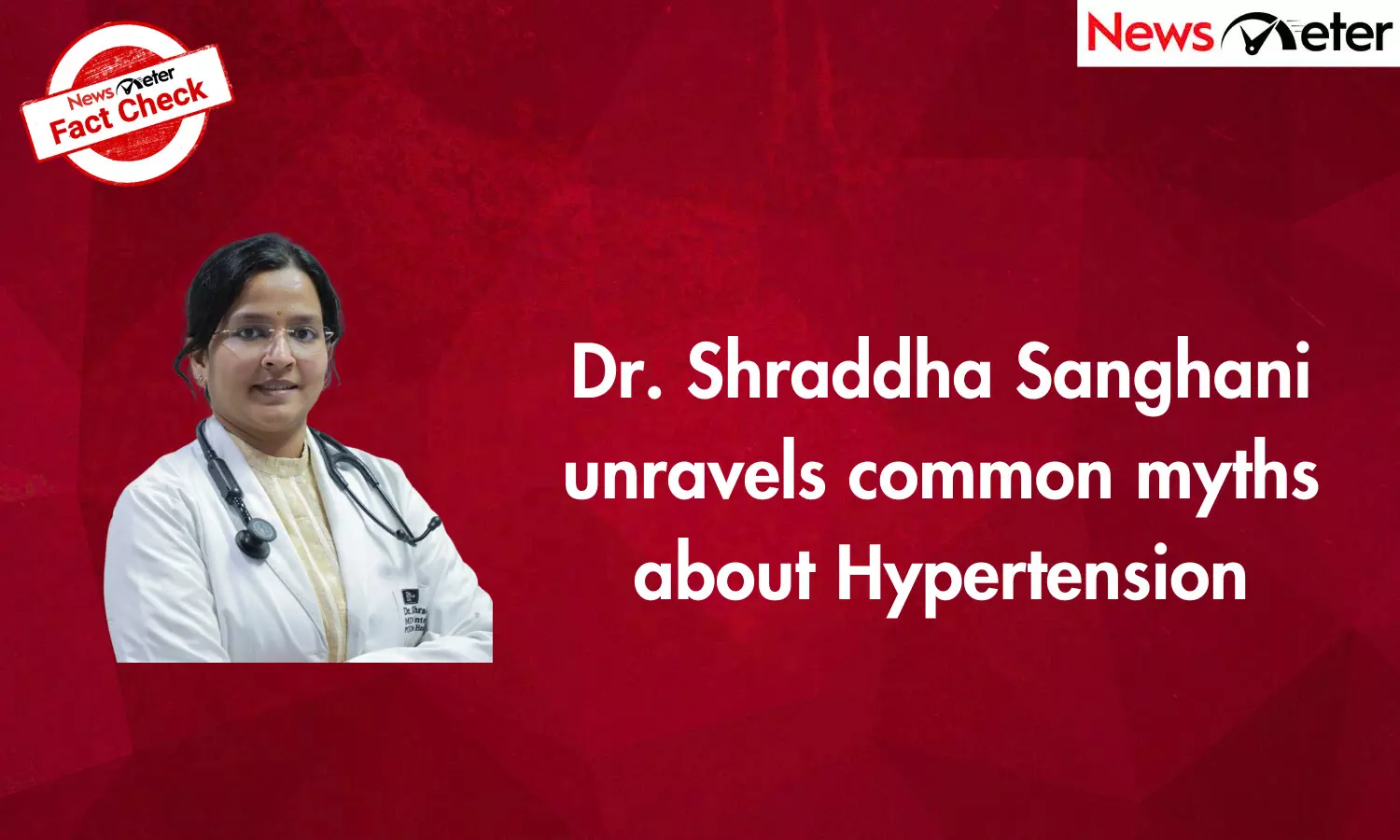Doctor speaks: Here are some myths and facts related to hypertension
By Neelambaran A
Hypertension or high blood pressure is one of the most common lifestyle-related medical conditions today, affecting around 1.3 billion adults globally in the 30 to 79 age group as per the World Health Organisation. Those affected include younger age groups and pregnant women.
Despite its widespread impact, it remains poorly understood by the general public. Misinformation leads to delayed diagnosis, poor treatment adherence, and serious complications like heart attacks, strokes, and kidney failure.
Dr. Shraddha Sanghani, Consultant Internal Medicine, Renova Century Hospitals, Hyderabad unravels some common myths and presents the facts to stay informed and for a better heart health.
Myth 1: Hypertension always has symptoms
Fact: Hypertension is often asymptomatic in its early stages, which is why it's called the ‘silent killer’. Many people discover it only after a routine check-up or a serious event like a stroke. Regular monitoring is the only way to detect it early.
Myth 2: Only older people get high blood pressure
Fact: While age is a risk factor, hypertension can affect people in their 20s and 30s, especially those with high stress, sedentary jobs, poor diets, obesity, or a family history. In younger individuals and in those in whom high blood pressure reading has appeared suddenly, must be evaluated for secondary causes for hypertension. Young adults must not ignore their cardiovascular health.
Myth 3: If you feel fine, you don’t need medication
Fact: Hypertension medications work silently to prevent complications. Feeling ‘normal’ or having a normal blood pressure does not mean that the blood pressure of the individual is under control. Never stop or adjust medication without consulting the doctor, as sudden withdrawal can be dangerous.
Myth 4: Once you start blood pressure medication, you’re on it for life
Fact: While some may need long-term treatment, others can reduce or even stop medication with sustained lifestyle changes like weight loss, healthy eating, and regular exercise. Titration or discontinuation of medications must be done by the doctor with close monitoring.
Myth 5: Salt is the only dietary concern for high blood pressure
Fact: While reducing salt is crucial, so is cutting back on processed foods, red meats, and sugary beverages. A balanced diet rich in fruits, vegetables, and whole grains (such as the DASH diet) is most effective in blood pressure management.
Myth 6: All types of high blood pressure are the same
Fact: There are different types, including essential hypertension (most common), secondary hypertension (due to other medical conditions), and gestational hypertension (occurs during pregnancy). Each requires a different approach to treatment. While essential hypertension requires monitoring and treatment, secondary hypertension requires evaluation for the cause of hypertension, which could range from renal problems to hormonal problems. Identifying the cause of secondary hypertension is key to managing secondary hypertension.
Myth 7: Gestational hypertension ends after delivery
Fact: While some women see a return to normal blood pressure post-delivery, others may develop chronic hypertension later in life. Regular postpartum monitoring is essential for women with a history of high blood pressure during pregnancy.
Myth 8: Hypertension isn’t that serious
Fact: Uncontrolled high blood pressure can damage vital organs over time. It significantly increases the risk of heart disease, kidney failure, vision loss, and stroke.